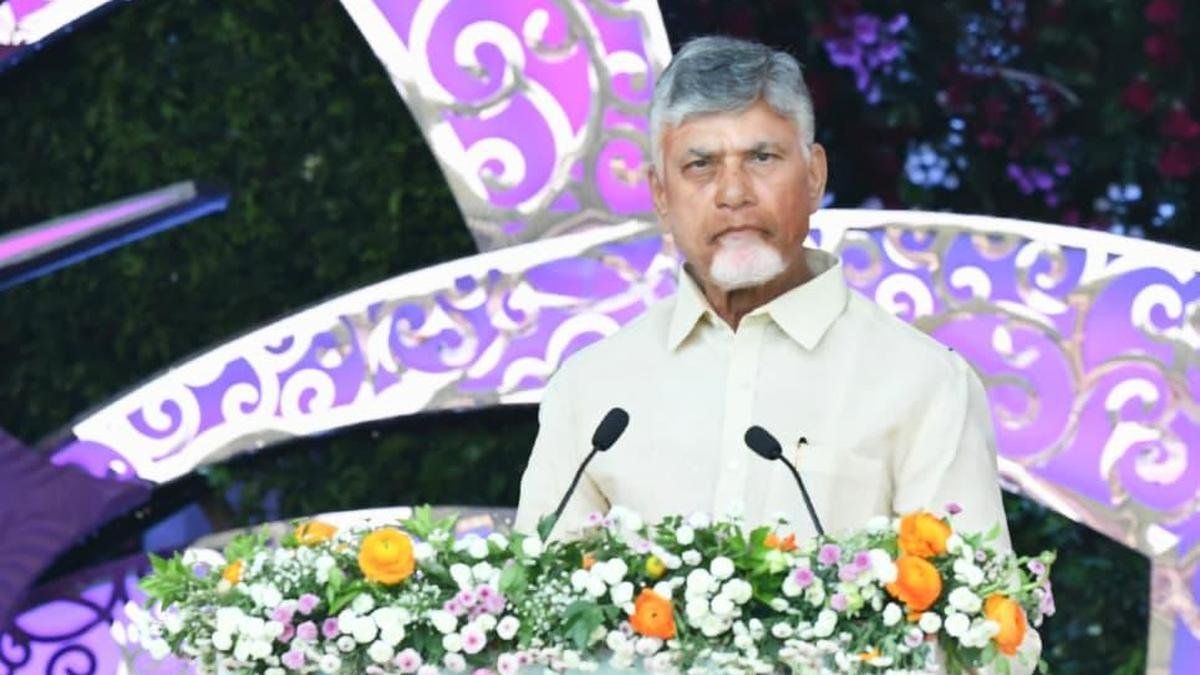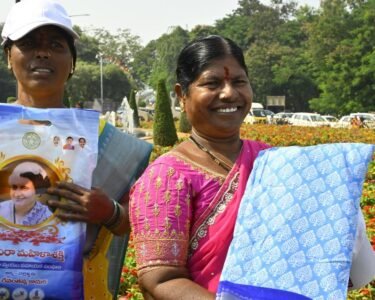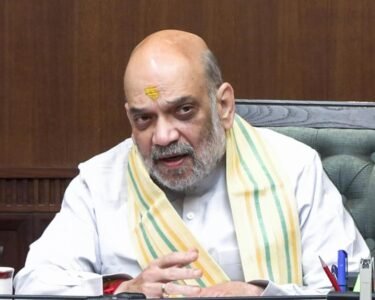In a significant acknowledgment of spiritual leadership and social service, Andhra Pradesh Chief Minister N. Chandrababu Naidu and JanaSena Party chief Pawan Kalyan praised the humanitarian legacy of Sri Sathya Sai Baba. Speaking at a large gathering organized to commemorate Baba’s contributions, both leaders highlighted the global impact of his teachings, the community service initiatives inspired by him, and the continuing relevance of his philosophy in today’s society. Their speeches underlined how Sathya Sai Baba’s holistic model of service—spanning healthcare, education, water supply, and social upliftment—remains a guiding light for millions.
A Unified Tribute to a Global Spiritual Icon
The event, attended by devotees, philanthropists, community leaders, and educators, served as a platform for both Naidu and Pawan Kalyan to revisit Sathya Sai Baba’s profound influence. They emphasized that Baba’s approach to service was rooted in compassion, discipline, and inclusivity, transcending religious and regional boundaries.
Chandrababu Naidu noted that Baba’s legacy continues to inspire not just devotees but policymakers and social workers across the world. Pawan Kalyan, known for his philanthropic inclination, added that Baba represented a rare combination of spirituality and actionable service that directly transformed people’s lives.
Sathya Sai Baba’s Philosophy of Selfless Service
Central to the speeches was an exploration of Sathya Sai Baba’s enduring message: “Love all, serve all.” Both leaders praised how Baba’s teachings emphasised that spirituality is meaningful only when it translates into service for humanity.
Core Values Highlighted
- Compassion towards all
- Service without expectation
- Equality irrespective of caste, religion, or social status
- Uplifting the poor through education and healthcare
According to Naidu, these values form the backbone of several welfare programmes implemented in Andhra Pradesh over the years.
Massive Humanitarian Projects Launched Under Baba’s Guidance
Sathya Sai Baba is revered worldwide not only as a spiritual leader but also as a visionary humanitarian. Several monumental service-oriented projects created under his guidance were praised during the event.
1. Free World-Class Healthcare
The Sathya Sai Super Speciality Hospitals provide advanced cardiac and neuro surgeries completely free of charge. Leaders noted that these hospitals stand as a powerful example of how healthcare can be delivered with dignity, compassion, and zero financial burden.
2. Education for All
Institutions like Sri Sathya Sai Institute of Higher Learning offer high-quality, values-based education at no cost. Students from diverse backgrounds benefit from professional courses, character-building training, and a spiritual environment that encourages social responsibility.
3. Safe Drinking Water Projects
Large-scale water supply projects implemented in villages, cities, and drought-prone regions of Andhra Pradesh and Telangana were highlighted as among Baba’s greatest gifts. These projects solved chronic water shortages and improved public health conditions.
4. Global Outreach
The leaders acknowledged that Sathya Sai’s humanitarian work isn’t limited to India. His global network spans over 100 countries where volunteers engage in community development, disaster relief, and value-based education.
Naidu’s Reflections on Baba’s Influence in Governance
Chandrababu Naidu stated that many governance models in Andhra Pradesh draw inspiration from Baba’s ideology of service. He emphasized that the state’s welfare initiatives aim to reflect the same spirit of compassion and long-term impact.
Governance Elements Inspired by Sai Ideals
- Transparent service delivery
- Prioritizing the poor and marginalized
- Creating long-term infrastructure to address fundamental needs
- Empowering youth through education and skill development
Naidu highlighted that Baba’s teachings continue to guide administrative thinking, especially in health and education reforms.
Pawan Kalyan’s Praise for Moral and Social Upliftment
Pawan Kalyan credited Sathya Sai Baba for instilling values of discipline, empathy, and social service among millions of youth. He referenced how Baba’s programs have shaped generations of volunteers who serve communities during floods, pandemics, and other crises without expecting recognition.
He noted that in a world driven by materialism and division, Baba’s model provides a blueprint for unity and ethical leadership.
Call for Youth Participation in Humanitarian Activities
Both leaders encouraged the younger generation to adopt Sathya Sai Baba’s service philosophy. They pointed out that youth have the power to bring transformative change, especially when guided by selfless values.
They urged educational institutions and social organizations to incorporate community service programs inspired by Baba’s ideals, thereby ensuring that his legacy remains active and impactful.
Continuing Relevance of Sathya Sai Baba’s Legacy
Despite decades passing since his physical presence, Sathya Sai Baba’s mission continues through millions of followers and numerous institutions. His principles of love, humility, discipline, and commitment to service remain relevant in addressing modern issues such as inequality, healthcare access, and moral decline.
The leaders reaffirmed that the world today needs more models like Sathya Sai Baba—figures who combine spirituality with practical action to uplift humanity.
Conclusion
The joint tribute from Chandrababu Naidu and Pawan Kalyan reaffirmed Sathya Sai Baba’s status as one of the most influential humanitarian leaders of modern India. Their recognition of his contributions reflects the far-reaching impact of his philosophy and service projects. By celebrating his legacy, the leaders highlighted the importance of compassion-driven governance, youth participation, and sustained community development. Sathya Sai Baba’s model of humanitarian service continues to shine as a beacon of hope, guiding individuals, governments, and societies toward a more compassionate and harmonious future.
Do Follow Us Instagram







